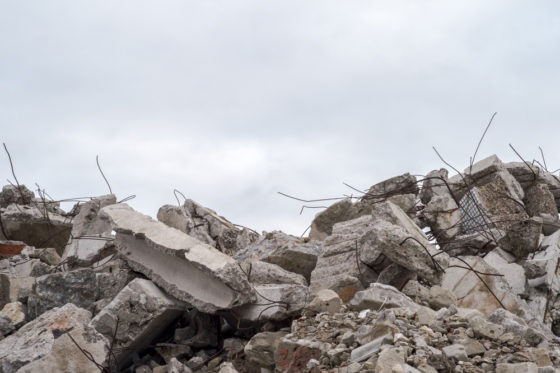Dutch should apologise for Hawija bombings, compensate those affected: report


The Netherlands should apologise to the people of an Iraqi town, bombed by Dutch planes in 2015, because the failure to do so is contributing to ‘anti-western sentiment’ which could fuel future terrorism, researchers say.
Two Dutch F-16s targeted a factory in the town of Hawija where car bombs were made for Islamic State as part of the efforts against the ISIS movement. The airstrike, however, caused a large secondary explosion which resulted in the destruction of hundreds of buildings and killing a large number of civilians.
A new report, drawn up by PAX, researchers from the Intimacies of Remote Warfare (IRW) project at Utrecht University and the Al-Ghad League for Woman and Child Care, looks at the human impact of the airstrike, primarily through interviews with 119 victims, supplemented with visual material and interviews with 40 key informants.
The researchers conclude that the strike led to more than 85 deaths and hundreds of injuries – higher than earlier estimates. Victims and other key figures now say 1,200 companies and shops and 6,000 homes were also damaged.
‘After more than six years, civilians are still suffering severely from the consequences of the strike,’ the report concludes.
‘A loss of employment and income, stacking of debts, loss of life due to lack of access to medical services and medicine, trauma and health problems, and a lack of access to education all compound and last up until today. At least part of these problems could have been prevented had civilians received timely assistance.’
Ongoing debates on protocols, or the alleged lawfulness of the violence cannot
undo the devastation and suffering on the ground, the report points out. ‘The only way forward is to face the facts, to officially recognise the harm done, and take concrete action for compensation… in a timely and effective manner.’
Courts
The Dutch government has promised to spend €4.4 billion on two projects to compensate for the loss of homes, electricity and water supplies, but has denied liability for the attack.
Defense minister Kasja Ollongren told MPs on Thursday that she stood by earlier decisions not to compensate individuals or relatives.
‘I understand that the projects for the benefit of the community may not be perceived as compensation for or recognition of their individual suffering,’ she said. ‘Yet I hope that in this way the Netherlands will make lasting contribution to a better future for the affected community as a whole.’
The government has also set up its own investigation into events at Hawija, which has not yet reported back.
In February it emerged that 11 Iraqi civilians are suing the Dutch state for injuries they and their families suffered in the air strike.
Thank you for donating to DutchNews.nl.
We could not provide the Dutch News service, and keep it free of charge, without the generous support of our readers. Your donations allow us to report on issues you tell us matter, and provide you with a summary of the most important Dutch news each day.
Make a donation